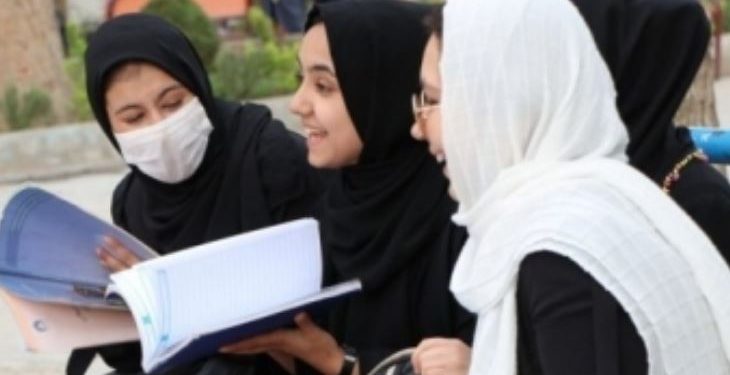United Nations: The highest-ranking woman at the United Nations said Wednesday she used everything in her “toolbox” during meetings with Taliban ministers to try to reverse their crackdown on Afghan women and girls, and she urged Muslim countries to help the Taliban move from the “13th century to the 21st.”
Deputy Secretary-General Amina Mohammed, a former Nigerian Cabinet minister and a Muslim, said at a news conference that four Taliban ministers, including the foreign minister and a deputy prime minister, spoke “off one script” during meetings with her delegation last week.
“Their(Taliban’s) definition of protection would be, I would say, ours of oppression,” Mohammed said.
“We reminded them that in humanitarian principles, non-discrimination was a key part and that they were wiping out women from the workplace,” Mohammed added.
As a Sunni Muslim, like the Taliban officials, Mohammed said she told the ministers that when it comes to preventing girls’ education beyond the sixth grade and taking away women’s rights, they are not following Islam and are harming people.
In one setting, Mohammed stated, she was told by a Taliban official she didn’t name that “it was haram (forbidden by Islamic law) for me to be there talking to them.”
These conservatives won’t look straight at a woman, she noted, so she said she played “that game” and didn’t look directly at them either.
“I gave as much as I think they gave, and we did push,” she told.
Mohammed said the Taliban, who have not been recognized by a single country, want international recognition and Afghanistan’s seat at the United Nations, which is currently held by the former government led by Ashraf Ghani.
“Recognition is one leverage that we have and we should hold onto,” Mohammed said.
Before arriving in Kabul, Mohammed’s delegation traveled to Muslim-majority countries, including Indonesia, Turkey, Gulf states and Saudi Arabia, where she said there was wide support against the Taliban bans.
She said there is a proposal for the UN And the 57-member Organization of Islamic Cooperation to host an international conference in mid-March on women in the Muslim world.
“It’s very important that the Muslim countries come together,” she said. “We have to take the fight to the region and we need to be bold about it and courageous about it because women’s rights matter.”
Mohammed said it is important for the UN And its partners to work more in some 20 Afghan provinces that are more forward-leaning.
“A lot of what we have to deal with is how we travel the Taliban from the 13th century to the 21st,” she said.
She said the Taliban told her delegation that it is putting forward a law against gender-based violence, which she called “a big plus” because rape and other attacks are increasing in Afghanistan.
“I want to hold the Taliban to champion implementing that law,” she said.
Mohammed said it is important to maximize whatever leverage there is to bring the Taliban back to the principles underpinning participation in the “international family.”
“No one objects to a Muslim country or Sharia (law),” she said. “But all of this cannot be re-engineered to extremism and taking views that harm women and girls. This is absolutely unacceptable, and we should hold the line.”
The Taliban took power for a second time in August 2021, during the final weeks of the US And NATO forces’ pullout from Afghanistan after 20 years of war.
–AP






































